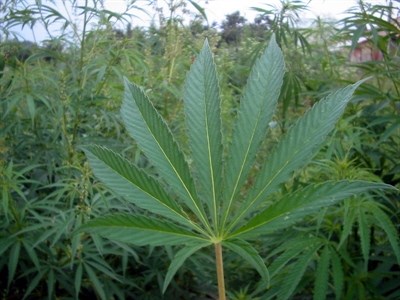
Image Credit: SOURCE/ Wikipedia Commons
April 01, 2013 - 12:30 PM
MARIJUANA LAWS CHANGING THE RULES OF THE GAME FOR GROWERS
By Charlotte Helston
The Lumby and Cherryville area is home to a mostly legal form of agriculture—growing marijuana.
It's legal, it's controversial, and it's about to see some drastic changes.
Lumby Cpl. Henry Proce says the area's numerous illegal growers have, over the past few years, started getting licensed through Health Canada to grow medical marijuana. In the beginning, it was a slow transition. But in the last two years, he says the trend has really started to climb.
"We're at the point where the majority of complaints we get turn out to be licensed grows," Proce says.
The Lumby cop says the force recently began tracking how many licensed grow-ops they encounter. Those numbers aren't available yet, but he says the amount is "significant."
"We get tips all the time from people on suspected operations, and usually they turn out to be licensed. We deal with at least a couple new ones every month."
When RCMP get a tip, the protocol is to call Health Canada and find out if the grow is licensed. If it's not, an investigation begins, search warrants are sought, and the operation may end up busted. But if the grow is legitimate, it essentially becomes untouchable.
"We can go knock on the door and ask to do an inspection, but they don't have to let us in. I can remember only one time when someone invited us into their grow-op. It's extremely rare," Proce says.
Proce says what goes on behind those closed doors often violates the law. He says growers produce more than they're allotted and divert much of their product to the black market.
"It's a very lucrative field. I talked to one fellow with 90 licensed plants and he made over $50,000 a year."
Proce says once growers have the operation set up with Health Canada, it's easy to add another couple plants—or a couple hundred. Then it hits the streets where it's unregulated.
That's why Proce wants an inspection provision embedded in the law. "Even if we have to give them a day or two's notice, we need to be inspecting those grows."
Proce says licensing also offers illegal growers who've been busted a loophole to get out of the charges. "We'll search homes with a warrant, find everything, then the grower decides to get licensed, and we can't do anything. It's very frustrating."
He notes a massive bunker-style grow-op busted last fall has largely escaped charges because the operators turned around and got licensed.
He says the system does a poor job of keeping previous drug offenders from establishing legal grow-ops because their siblings or friends can easily take the license out in their name.
The inherent dangers created by even legal grow-ops are another concern for Proce, especially when they are located near schools or subdivisions. "The legislation has to be tightened up. Grow-ops attract organized crime. They (criminals) find out where the licensed or illegal grows are—doesn't matter—and come in with weapons and they take the plants for themselves."
He lists fire as another common danger with grow-ops. Due to shoddy electrical wiring, he says barns and houses often burst into flames.
He says the grower takes those risks upon him or herself, but believes the burden shouldn't fall on neighbours.
"It's completely out of hand," he says.
New legislation proposed by Health Canada is expected in the spring of 2014. Under the new rules, all licenses to possess and licenses to produce will expire, and individuals requiring medical marijuana will have to purchase it from licensed producers. Grow-ops will shift from small "mom and pop" businesses to larger scale commercial ventures with tighter security. Patients will no longer be able to grow small personal stashes.
The proposed changes are under scrutiny now after a 75 day comment period.
Proce is uncertain whether the changes will fix what he says "might have been a hastily drafted law."
Then again, he says, "It can't get much worse than it already is."
To contact the reporter for this story, email Charlotte Helston at chelston@infotelnews.ca or call (250)309-5230.
News from © iNFOnews, 2013